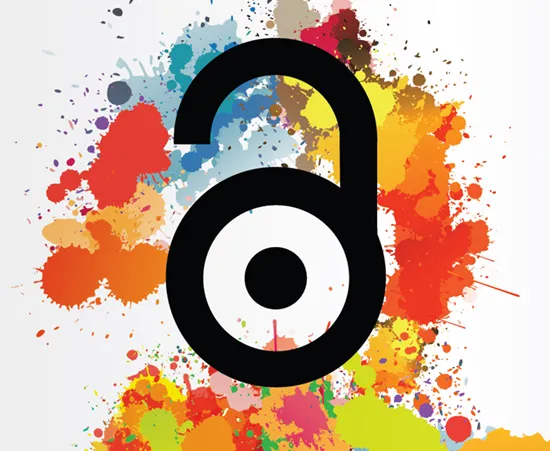More information
What we do
The scholarly publishing system
Scholarly communication can be thought of as the system through which research and scholarship is created, evaluated, distributed, and preserved. (Association of College & Research Libraries, Principles and Strategies for the Reform of Scholarly Communication 1.)
This system includes traditional or formal publications, such as scholarly journal articles, scholarly chapters or monographs (single-volume books offering research into a specialized area of knowledge), and conference proceedings. It also includes continually emerging publications, such as data sets, data visualizations, working papers, and blogs.
What scholarly communications issues require support?
There are many aspects of scholarly publishing — and many points within the publication lifecycle, from the rudiments of a research idea to a final publication — at which researchers may need support.
For instance, facilitating the dissemination of scholarly writings means having to consider issues like:
- What models or platforms exist for the funding, distribution, and discovery of scholarship?
- How are these publications evaluated or measured for impact?
- Who has access to creating and reading publications, and how is access provided? What access barriers exist?
- Who “owns” or controls the content, and how can the content be used?
The answers to all of these questions are changing. Scholarly Communication and Information Policy (SCIP) assists scholars in navigating this developing field.
With SCIP’s services, the Library aims to support effective, efficient, sustainable, and economically viable systems for the creation, discovery, dissemination, and preservation of scholarship — particularly through systems that provide barrier-free access to quality information.
Our program
Mission
Scholarly Communication and Information Policy (SCIP) helps scholars navigate the shifting publishing, intellectual property, and information policy landscapes in ways that promote research dissemination, accessibility, and impact.
Areas of expertise
We can help you with all your scholarly communication and publishing questions and needs. Do you have questions about scholarship, open access publishing, scholarly impact, copyright, licensing, and more? We are here for you!
- Copyright in research, publishing, and teaching
- Authors’ rights, and protecting and managing your intellectual property
- Scholarly publishing options and platforms
- Open access for scholarship and research data
- Tracking and increasing scholarly impact
- Affordable and open course content
Services
We provide:
- Individualized support and personal consultations
- In-class and online instruction
- Presentations and workshops for small or large groups and classes
- Customized support and training for each department and discipline
- Online guidance and resources
Outcomes and strategies
To understand the services that SCIP can provide you, we’ve developed a programmatic plan that aligns with the Library’s own Strategic Plan. The SCIP program plan identifies six key outcomes and associated strategies for which we provide corresponding support services. We’ll provide regular updates about our progress toward these outcomes, and we welcome your feedback.
Out.1. Faculty, students, and scholars will have increased access to, and be able to make greater use of, scholarly resources in their research, publishing, and instruction.
1. Support the creation, dissemination, and use of OA scholarship and open educational resources (OERs) with fewer use/reuse restrictions.
2. Establish partnerships with and conduct outreach to scholars in all stages of the research and knowledge-creation processes — from data acquisition, creation, and management, through to content publishing and preservation — to support the use of OA or licensed materials in research.
3. Modify and streamline library permissions policies in ways that promote open access and lower research barriers.
4. Help guide library licensing in a manner that maximizes content usability for advanced content/textual mining.
Out.2. Faculty, students, and scholars will better understand and make informed decisions about using licensed and intellectual property (IP) rights-protected materials in their research, scholarship, and teaching, and be able to better manage their own intellectual property rights as authors.
1. Provide copyright and permissions advisory services and outreach regarding use of IP rights-protected and licensed materials within one’s scholarship and teaching — and particularly in ways that encourage the exercise of fair use.
2. Provide services and outreach related to use and protection of authors’ own IP and other rights — such as education regarding author agreements and rights management, public access mandates, and licensing others to use one’s own scholarly output.
3. Establish policies and services and provide outreach regarding research data publishing and licensing, data publishing mandates, and data-related IP and privacy issues.
Out.3. Faculty, students, and scholars will have a better understanding of their scholarly publishing options, and participate more in open access publishing.
1. Provide education and guidance about scholarly publishing options and platforms, and consult with researchers about publishing rights and impact.
2. Provide education and advocacy about OA, and support for UCB campus participation in OA publishing, repositories, or funds.
3. Provide UCB scholars with better access to funding and infrastructure that supports their participation in open access publishing of scholarly resources.
4. Establish relevant library policies and processes to further advance open access publishing platforms and opportunities.
5. Help ensure that UCB researchers have access to the newest formats and channels for releasing and publishing their scholarship — including by pursuing and piloting emerging scholarly communication platforms and tools.
6. Partner with university presses and publishers to promote OA publications by UCB scholars.
Out.4. Faculty, students, and scholars will garner greater impact for their scholarly publications.
1. Provide guidance and support to ensure that UC Berkeley scholarship is well promoted, discoverable, and accessible.
2. Provide support for the curation and preservation of UCB digital scholarship — thereby making UCB digital scholarly projects increasingly visible, discoverable, and well-stewarded.
3. Provide guidance and outreach regarding scholarly impact tracking, metrics/alt-metrics, and improving scholarly profiles.
4. Support the creation, dissemination, and use of OA scholarship and OERs to increase the visibility and use of UCB-authored scholarly materials.
Out.5. The UC Berkeley campus will be better informed about issues in the field of scholarly communication, and the specific actions that the Library is taking to help shape or respond to these developments.
1. Develop and deliver learning opportunities and training to foster knowledge of key and emerging issues and trends in scholarly communications.
2. Provide useful, regular communication to faculty, students, and staff regarding scholarly communication issues.
Out.6. OSCS will help lead and build communities of practice to bring about positive change in the scholarly communication and publishing landscape.
1. Participate in conferences, forums, and intra- and inter-institutional partnerships that promote change in scholarly communication.
2. Engage in research, writing, and analysis regarding key and emerging issues and trends in the scholarly communication field.
3. Develop articles, conference papers, presentations, etc. to help shape policy and practices in scholarly publishing.
4. Participate in national/international advocacy and leadership for OA to help make the world’s knowledge resources more discoverable and accessible.
5. Pursue grant or other funding opportunities to achieve programmatic goals and outcomes.
Provide input
If there is anything you'd like to share with us about these goals, services, and strategies, we’d welcome the feedback. Please reach out to us at schol-comm@berkeley.edu.
Our team

Rachael G. Samberg, Director, Scholarly Communication & Information Policy
Rachael leads Scholarly Communication and Information Policy. A Duke Law graduate, Rachael practiced intellectual property litigation at Fenwick & West LLP for seven years before spending six years at Stanford Law School’s library, where she was Head of Reference & Instructional Services and a Lecturer in Law. Rachael speaks throughout the country about scholarly communication, copyright, licensing, privacy, and ethics. She has been project director for multiple NEH-funded grants to develop and teach scholars legal literacies for text and data mining in both U.S. and cross-border research contexts, and is widely published on these matters. Currently, she is pioneering changes to content licensing in ways that support computational research, accessibility, artificial intelligence usage, and more.
Ask me about: All things scholarly communication and publishing!
- Copyright, licensing, and intellectual property
- Authors’ rights
- Scholarly publishing
- Open access scholarship and data
- Affordable and open course content
- Scholarly impact
- Scholarly communication initiatives and outreach
- Open access strategy
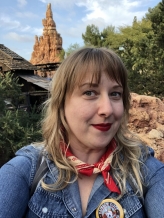
Michael Maire Lange, Copyright and Information Policy Specialist
Michael supports faculty, staff, students, and unaffiliated researchers with services related to copyright, fair use, and licensing. She is also a liaison to the Library’s Digital Lifecycle Program regarding information policy matters in digitization and use of collections. Previously she was the Permission and Access Officer at The Bancroft Library, and the Collections and Information Access Coordinator for the Oakland Museum of California.
Ask me about:
- Copyright and fair use
- Collections licensing
- Information policy
- Permissions policy

Timothy Vollmer, Scholarly Communication and Copyright Librarian
Tim supports faculty, staff, and students with services, outreach, and instruction related to scholarly communication and publishing, including copyright, fair use, information policy, and open educational resources. Before joining UC Berkeley Library in August 2019, he was Senior Public Policy Manager for Creative Commons. He’s also worked as Assistant Director to the Program on Public Access to Information for the American Library Association Office for Information Technology Policy in Washington, D.C.
Ask me about:
- Copyright and fair use
- Open educational resources
- Creative Commons licensing
- Classroom workshops
- eScholarship
- Information policy
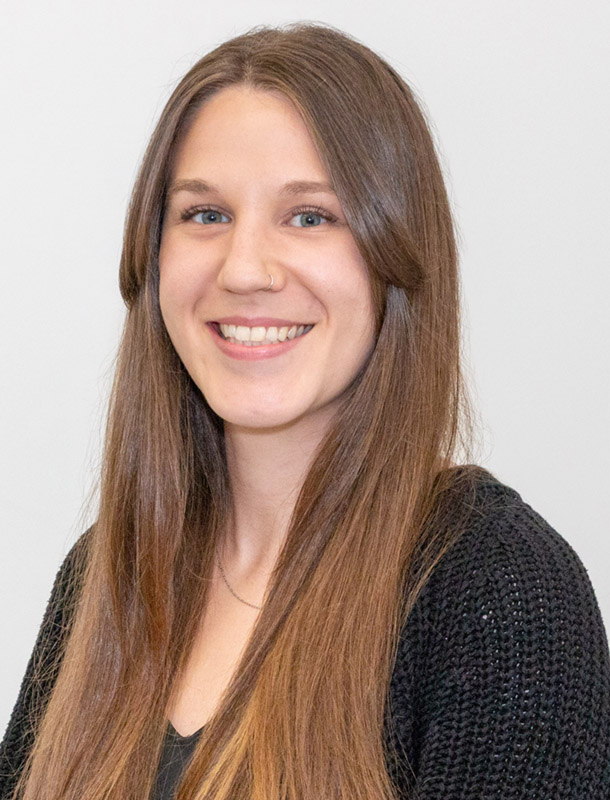
Samantha Teremi, Licensing Librarian
Samantha supports the Library’s efforts to acquire electronic resources and create sustainable frameworks for licensing. Before joining the Scholarly Communication and Information Policy team in 2022, she worked at UC Berkeley’s Art History/Classics Library and the Academy of Art University Library.
Ask me about:
- E-resource licensing
- E-resource usage rights
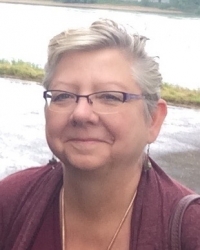
Jo Anne Newyear Ramirez, Associate University Librarian for Scholarly Resources
Jo Anne provides leadership for the Library Collection development strategy. In addition to working with all the subject librarians, several units report up to Jo Anne including Acquisitions, Preservation, Assessment, and Scholarly Communications. Before arriving at UCB, Jo Anne was the Associate University Librarian at the University of British Columbia overseeing Collections and Technical Services. Prior to UBC, Jo Anne was the Assistant Head of Research Services at the the University of Texas at Austin.
Ask me about:
- Scholarly communication initiatives
- Scholarly resources and open access strategy
Publications
Our office engages in a variety of education, training, project work, and policy interventions. Below is a sample of these activities. Please reach out to us at schol-comm@berkeley.edu if you have questions.
Workshops and presentations
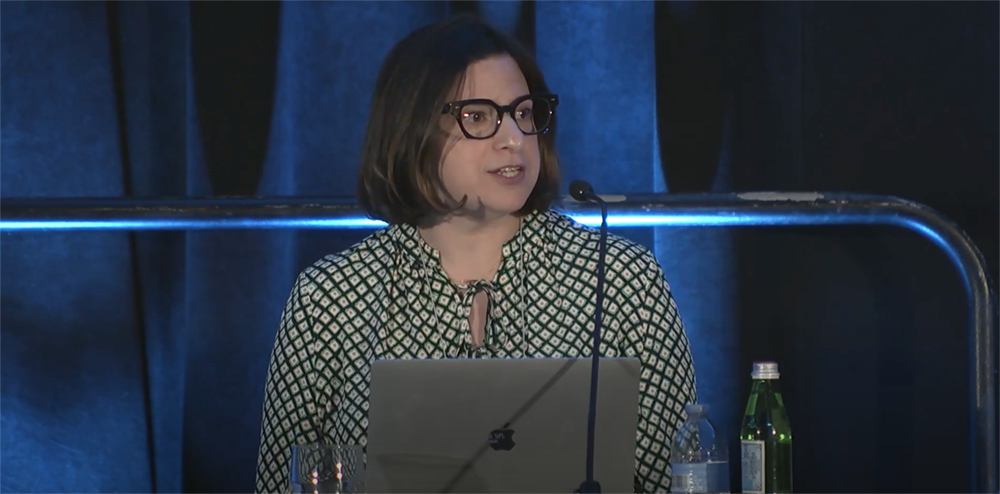
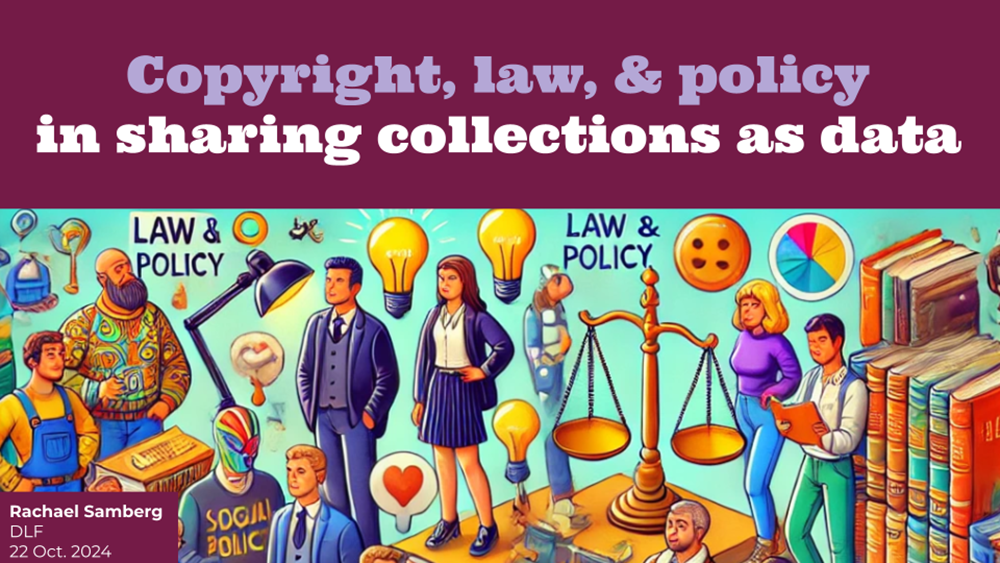
Digital Library Federation: Copyright, law, & policy in sharing collections as data (Google slides presentation)
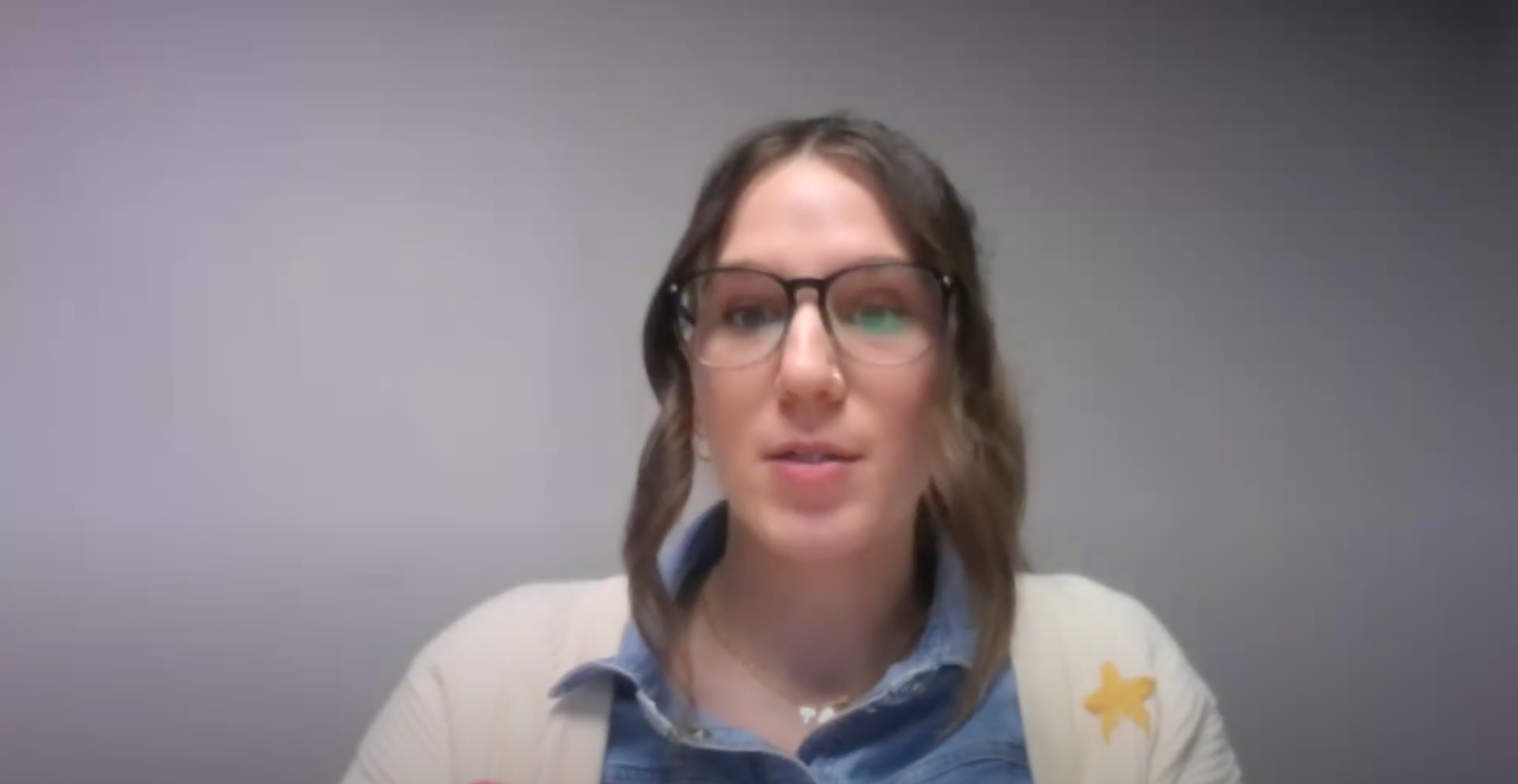
Community Call: Libraries and Title II of the Americans with Disabilities Act (video)
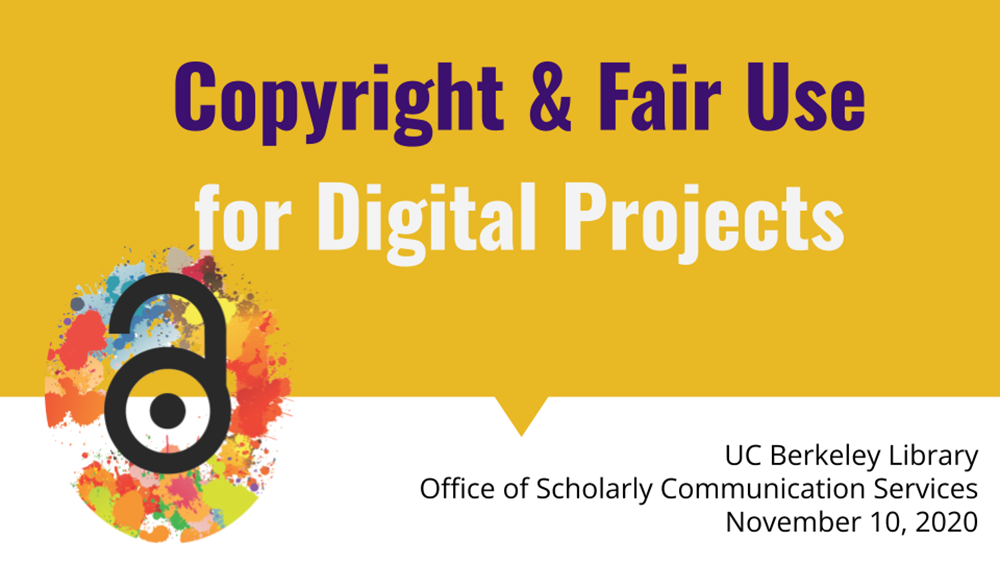
Copyright & Fair Use for Digital Projects (video)
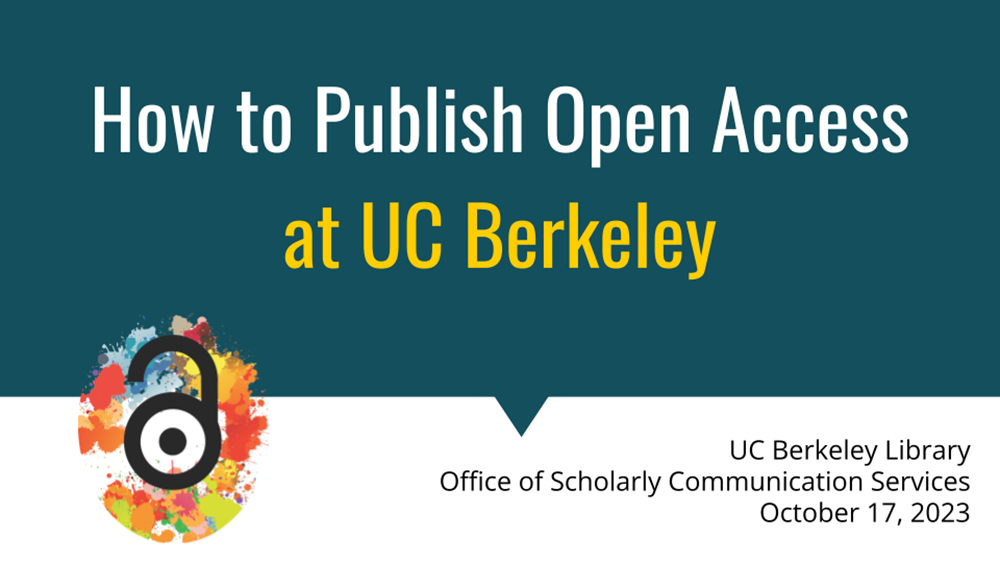
How to Publish Open Access at UC Berkeley (Google slides presentation)
Books
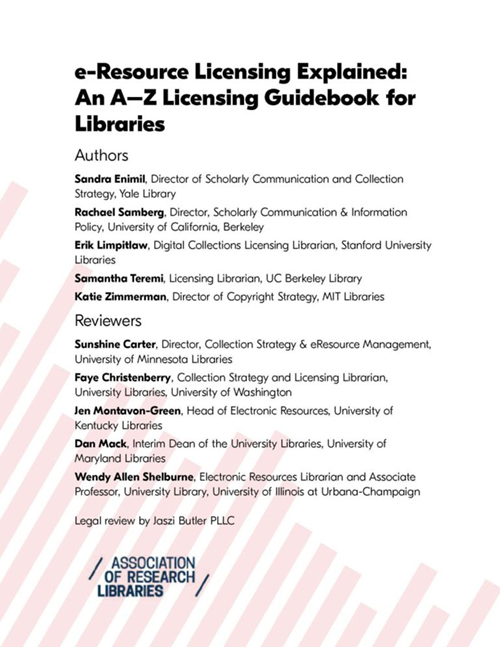
E-Resource Licensing Explained: An A-Z Licensing Guidebook for Libraries (e-book)
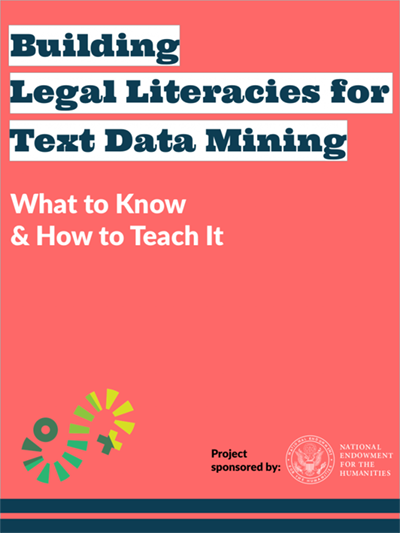
Building Legal Literacies for Text Data Mining (e-book)
Project reports, white papers
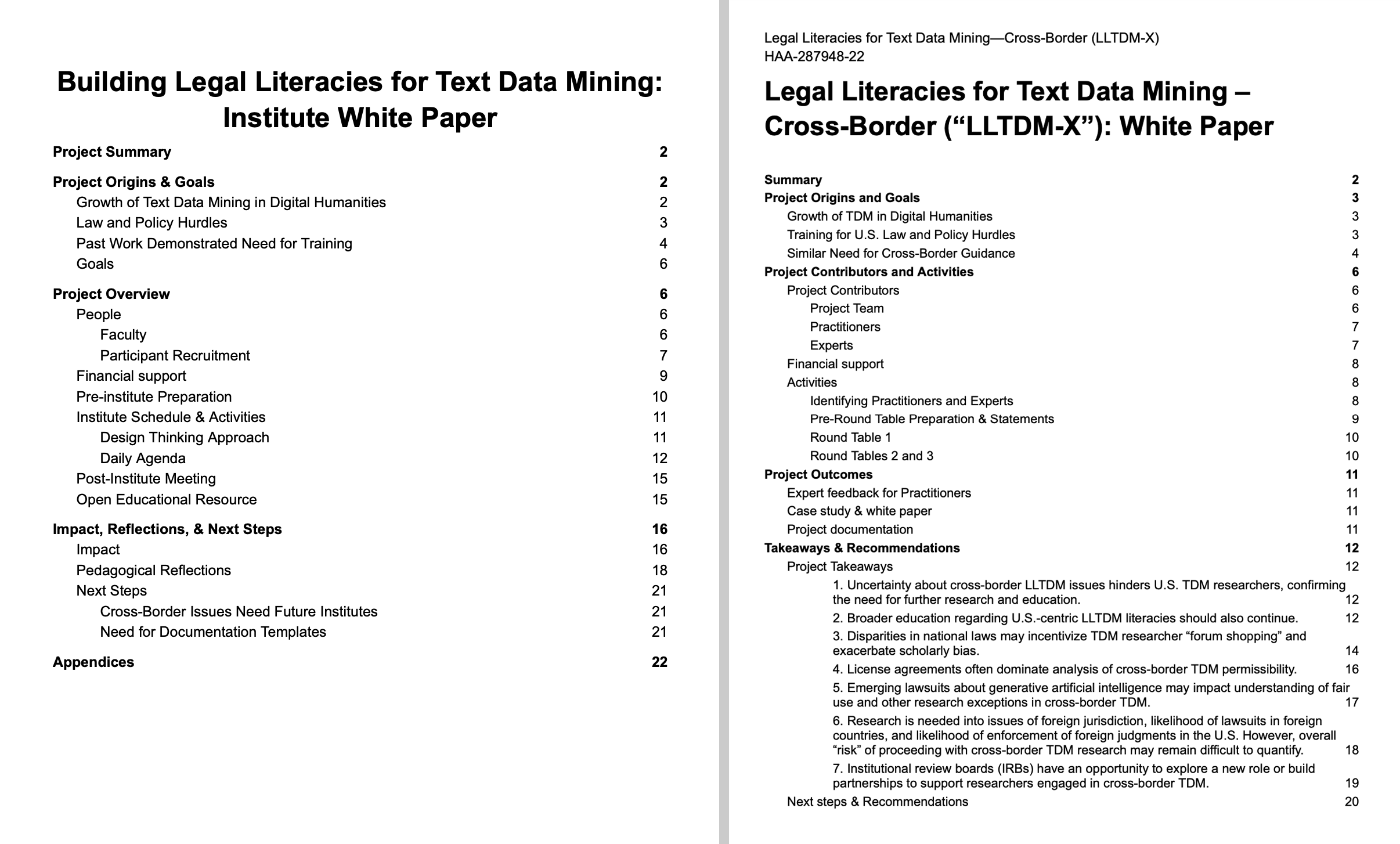
Building Legal Literacies for Text Data Mining: Institute White Paper
Legal Literacies for Text Data Mining – Cross-Border (“LLTDM-X”): White Paper
Policy advocacy
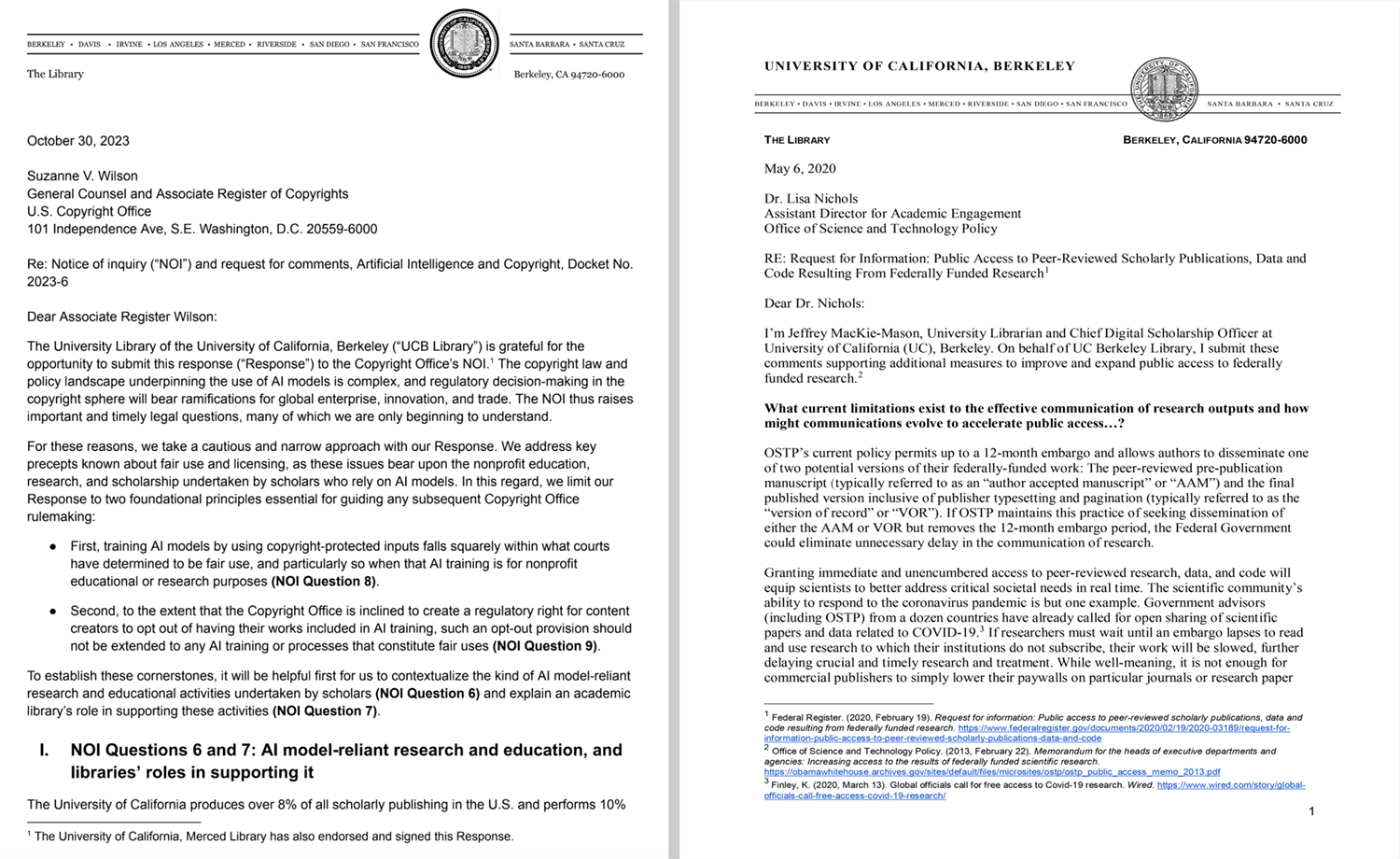
Comments to the U.S. Copyright Office on Artificial Intelligence and Copyright
Articles and blog posts

Licensing research content via agreements that authorize uses of artificial intelligence
Restricting Innovation: How Publisher Contracts Undermine Scholarly AI Research
Measuring diversity in Hollywood through the large-scale computational analysis of film
Annual Report

Scholarly Communication & Information Policy Annual Report FY2023-24
